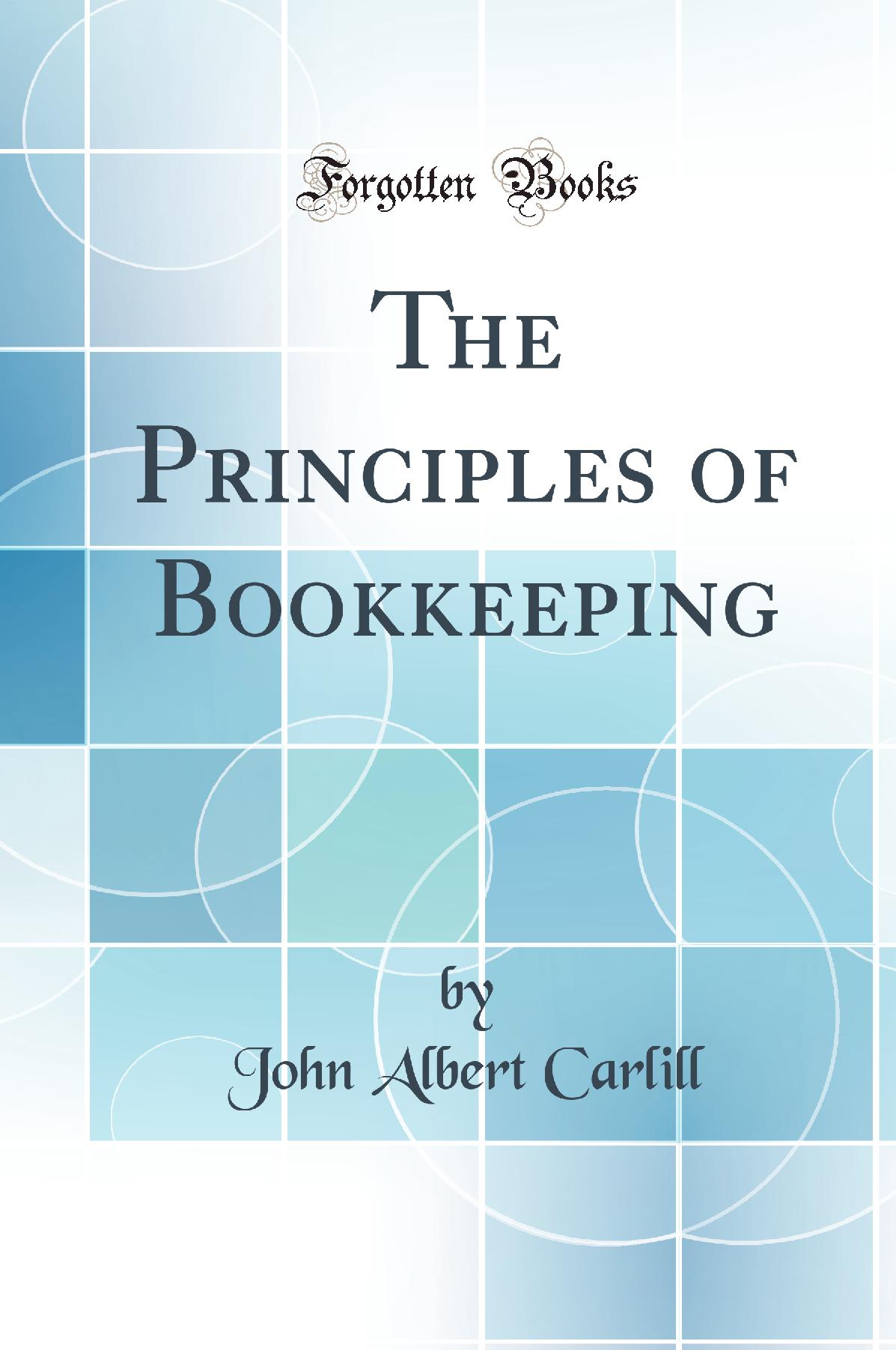Description
Excerpt from The Principles of Bookkeeping
Again, as the architect designs his building to fit the shape of his piece of land, so a bookkeeper who understands the principles of his work has not his mind cramped and stunted, and feels at liberty to modify his methods to suit the nature of the business. He has more boldness to judge whether a practice is right or wrong, under the circumstances, instead of simply whether it has been the custom or no.
It would seem, therefore, that the principles Should be the first things to be mastered, whereas, in practice, they are frequently the last to be learned. In most Offices, although much of the detail of Bookkeeping is performed by the junior clerks, they do not see how the accounts are finally closed and, though they may be taught to keep the accounts with the customers of.the firm perfectly accurate, they do not learn how the impersonal accounts are treated, so as to Show the benefits accruing to the firm, for the advantage of which the business is solely conducted. Occasionally, persons are found who have kept books for a long period, but having simply followed on with entries similar to those which had been previously made, they have managed to get through their work without fully knowing the why and the Wherefore of it. As we should hardly call a person a musician who could not read music, so we can hardly call a person a bookkeeper who has only learned his work by rote. The consequence is that, if any entries are required of an unusual character, such persons are quite at a loss, and it does not occur to them, or they dare not venture, to make any alteration in their system, even though it may be causing them unnecessary trouble.
As an illustration, the Journal in a business having almost world-wide fame, showed a curious specimen of a minor inaccuracy. The entries were correctly written in and posted.
About the Publisher
Forgotten Books publishes hundreds of thousands of rare and classic books. Find more at www.forgottenbooks.com
This book is a reproduction of an important historical work. Forgotten Books uses state-of-the-art technology to digitally reconstruct the work, preserving the original format whilst repairing imperfections present in the aged copy. In rare cases, an imperfection in the original, such as a blemish or missing page, may be replicated in our edition. We do, however, repair the vast majority of imperfections successfully; any imperfections that remain are intentionally left to preserve the state of such historical works.
Again, as the architect designs his building to fit the shape of his piece of land, so a bookkeeper who understands the principles of his work has not his mind cramped and stunted, and feels at liberty to modify his methods to suit the nature of the business. He has more boldness to judge whether a practice is right or wrong, under the circumstances, instead of simply whether it has been the custom or no.
It would seem, therefore, that the principles Should be the first things to be mastered, whereas, in practice, they are frequently the last to be learned. In most Offices, although much of the detail of Bookkeeping is performed by the junior clerks, they do not see how the accounts are finally closed and, though they may be taught to keep the accounts with the customers of.the firm perfectly accurate, they do not learn how the impersonal accounts are treated, so as to Show the benefits accruing to the firm, for the advantage of which the business is solely conducted. Occasionally, persons are found who have kept books for a long period, but having simply followed on with entries similar to those which had been previously made, they have managed to get through their work without fully knowing the why and the Wherefore of it. As we should hardly call a person a musician who could not read music, so we can hardly call a person a bookkeeper who has only learned his work by rote. The consequence is that, if any entries are required of an unusual character, such persons are quite at a loss, and it does not occur to them, or they dare not venture, to make any alteration in their system, even though it may be causing them unnecessary trouble.
As an illustration, the Journal in a business having almost world-wide fame, showed a curious specimen of a minor inaccuracy. The entries were correctly written in and posted.
About the Publisher
Forgotten Books publishes hundreds of thousands of rare and classic books. Find more at www.forgottenbooks.com
This book is a reproduction of an important historical work. Forgotten Books uses state-of-the-art technology to digitally reconstruct the work, preserving the original format whilst repairing imperfections present in the aged copy. In rare cases, an imperfection in the original, such as a blemish or missing page, may be replicated in our edition. We do, however, repair the vast majority of imperfections successfully; any imperfections that remain are intentionally left to preserve the state of such historical works.
Details
Publisher - Forgotten Books
Language - English
Hardback
Contributors
Author
John Albert Carlill
Published Date -
ISBN - 9781528444354
Dimensions - 22.9 x 15.2 x 0.7 cm
Page Count - 129
Paperback
Contributors
Author
John Albert Carlill
Published Date -
ISBN - 9781330015629
Dimensions - 22.9 x 15.2 x 0.7 cm
Page Count - 131
Payment & Security
Your payment information is processed securely. We do not store credit card details nor have access to your credit card information.

